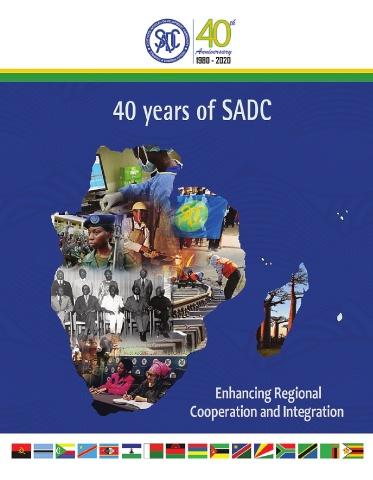Africa-Press – Mauritius. :The Southern African Development Community (SADC) has adopted numerous programmes to advance regional integration and generate wealth and prosperity for the people of Southern Africa since its inception.
The SADC Executive Secretary, Dr Stergomena Lawrence Tax, gave this message in the preface of a publication by the SADC Secretariat and the Southern African Research and Documentation Centre, entitled 40 Years of SADC: Enhancing Regional Cooperation and Integration.
Launched in Maputo, Mozambique, on 23 June 2021 during the Extraordinary SADC Summit of Heads of State and Government, the publication brings to light the history of SADC and highlights the major milestones and achievements as well as the challenges encountered by the region over the past 40 years.
Dr Tax underlined that industrialisation, trade and market integration, infrastructure development, food security, social and human development, peace and security, have been the key drivers of the SADC Programme of Action. She dwelt on the fact that the Southern African Region has grown and transformed over the past 40 years to become one of the main building blocks of the proposed African Economic Community, under the African Union.
SADC, she added, now comprises 16 of the continent’s rapidly growing economies namely Angola, Botswana, Union of the Comoros, Democratic Republic of Congo, Eswatini, Lesotho, Malawi, Madagascar, Mauritius, Mozambique, Namibia, Seychelles, South Africa, United Republic of Tanzania, Zambia and Zimbabwe.
Dr Tax spoke of the main objectives of SADC which are to achieve development, peace and security, and economic growth, to alleviate poverty, enhance the standard and quality of life of the peoples of Southern Africa, and support the socially disadvantaged through regional integration.
A total of 33 regional protocols covering various areas of cooperation have been signed since the transformation of SADC from a Coordination Conference to a Community in 1992.
Following the signing of the SADC Declaration and Treaty in 1992, the Region has shown commitment to deeper integration through strategic plans such as the Regional Indicative Strategic Development Plan 2010- 2020; Strategic Indicative Plan for the Organ on Politics, Defence and Security Cooperation 2010-2020; SADC Industrialisation Strategy and Roadmap 2015-2063; SADC Regional Agricultural Policy 2015; and SADC Regional Infrastructure Development Master Plan 2012. She added that they have laid a strong legal and institutional foundation for promoting regional cooperation.
Dr Tax expressed hope that the publication will instill, among the people of the SADC Region, a greater zeal to carry forward and encourage more collective action for effective implementation of the SADC regional integration agenda for the benefit of its citizens and the prosperity of individual economies, as well as the regional economy.
all news







